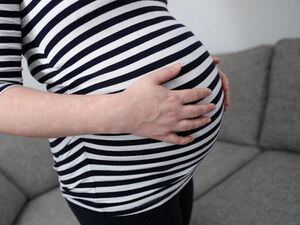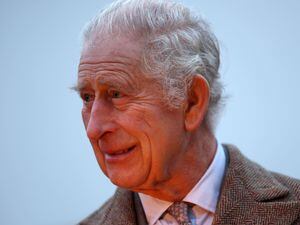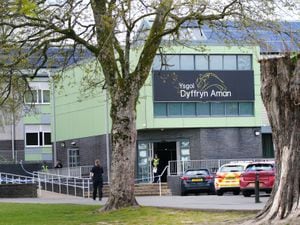Retailers urged to ban the sale of home dopplers
The devices, which can pick up a baby’s heartbeat, can give pregnant women a false sense of security when something is wrong, a charity warned.

Amazon, eBay and Facebook have been urged by a leading stillbirth charity to ban the sale of home dopplers from their websites.
Kicks Count said the devices, which can pick up a baby’s heartbeat, can give pregnant women a false sense of security when something goes wrong.
It said foetal dopplers are cheap to buy and easily available but warned they are only safe when used by a trained medical professional.
If a pregnant women is concerned about her baby and uses one, she may incorrectly detect her own heart rate, and not seek timely medical advice.
“We hear stories from many mums who have sadly lost their baby after they delayed seeking medical attention because they had been reassured after hearing their baby’s heartbeat,” said Kicks Count chief executive Elizabeth Hutton.
“Foetal dopplers are complex pieces of medical equipment and should not be available to the general public.
“We are calling on these heavyweight organisations to do the right thing.”
The call comes as charities prepare to mark Baby Loss Awareness Week.
A coalition of 60 charities working to prevent baby deaths and pregnancy loss have called for better bereavement care for parents across the UK.
It called on all health bodies to adopt a new programme – the National Bereavement Care Pathway – to ensure that families who have experienced loss are given the best support possible.
The standards include giving parents the opportunity to spend time with their babies, a dedicated bereavement room and bereavement care training for all staff who have contact with grieving parents.
Dr Clea Harmer, chief executive of the stillbirth and neonatal death charity Sands, said: “Bereavement care for anyone who has suffered a miscarriage or pregnancy loss, or the death of a baby, must get better and we believe we have the solution.
“The roll-out of the National Bereavement Care Pathway for pregnancy and baby loss is a crucial step towards ensuring that all health professionals in the UK can provide excellent bereavement care. I urge all NHS trusts and health boards to adopt the Pathway and ensure care around baby loss is offered in line with these standards.”
Meanwhile, a British fertility research charity, Genesis Research Trust, warned that the causes of baby loss are “under-researched”.
Professor Robert Winston, chairman and founder of the charity, said: “In over 40 years of my professional life I have never felt more at a loss than when confronted by a grieving mother and father who have just seen their dead baby.
“Their grief is unbearable when I have had to explain that we do not know yet why it happened.
“Genesis Research has helped reduce the incidence of baby loss but it is still too common and our scientists work on improving our understanding of the cause of such tragedies.”
Professor Phillip Bennett, a Genesis Research trustee and director of the Institute of Reproductive and Developmental Biology at Imperial College London, said: “Miscarriage is a very, very under-researched area, and yet it’s so common.
“In reality up to a fourth of conceptions will miscarry. We understand some of what causes miscarriage, but not all of what causes miscarriage.
“And we are currently not particularly good at looking after people at risk of miscarriage because we don’t understand enough. It carries a hidden psychological burden that we don’t really recognise.”





